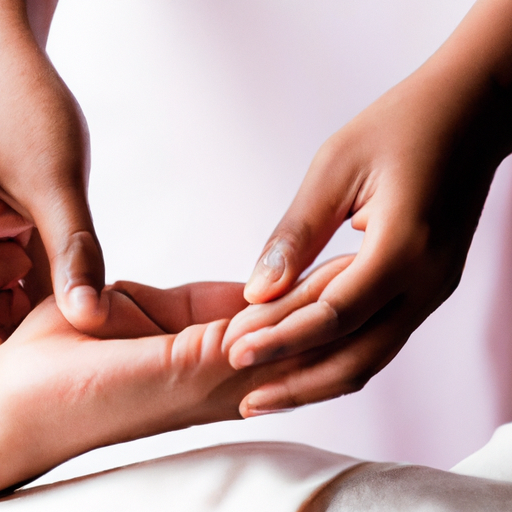
Have you ever wondered what goes on during a Reiki healing session? Whether you’re new to Reiki or have experienced it before, understanding what to expect and how to prepare can make the session even more beneficial for you. In this article, we will discuss the key factors to consider during a Reiki healing session and how they contribute to your overall well-being. So, sit back, relax, and let’s dive into the world of Reiki.
During a Reiki healing session, it’s important to consider creating a calm and peaceful environment. This may involve playing soothing music, using aromatherapy to create a relaxing ambiance, and dimming the lights to facilitate a calm state of mind. It’s also important to communicate your intentions and any specific areas of concern to the Reiki practitioner before the session begins. This allows the practitioner to focus on those specific areas and tailor the session to your needs. Additionally, it’s recommended to wear comfortable clothes that allow for easy movement and relaxation. In the next part of this article, we will explore other important aspects to consider during a Reiki healing session to ensure a transformative and rejuvenating experience. So, stay tuned!
Choosing a Reiki Practitioner
When it comes to embarking on a healing journey with Reiki, choosing the right practitioner is essential. Researching Reiki practitioners can help you find someone who resonates with you and meets your individual needs. Look for practitioners who have experience, training, and a good reputation in the field.
Researching Reiki Practitioners
Start by conducting online research to find a list of Reiki practitioners in your area. Browse their websites or social media profiles to learn more about their background, training, and areas of expertise. Look for practitioners who have received proper certification and have undergone training from reputable institutions.
Reading Reviews and Testimonials
Reading reviews and testimonials from other clients can provide valuable insights into a practitioner’s skills, professionalism, and effectiveness. Check websites, social media platforms, and online directories for these reviews. Pay attention to any recurring comments about the practitioner’s capabilities and the overall satisfaction of their clients.
Checking for Certification
Certification is an important aspect to consider when choosing a Reiki practitioner. Look for certifications from recognized Reiki organizations, such as the International Association of Reiki Professionals (IARP) or the Reiki Membership Association (RMA). These organizations ensure that their members adhere to certain standards of practice and ethics.
Preparing for the Session
Preparing for a Reiki healing session can contribute to the overall experience and effectiveness of the treatment. By following a few simple steps, you can optimize the benefits of Reiki.
Hydrating Beforehand
It is advisable to hydrate yourself properly before your Reiki session. Drinking enough water helps to keep your body well-hydrated, allowing energy to flow smoothly throughout your system. Avoid consuming large amounts of caffeine or alcohol before the session, as these substances may interfere with the energetic balance of your body.
Eating Lightly
Before your session, it is recommended to eat lightly. Consuming heavy meals or large amounts of food can make you feel sluggish and uncomfortable during the session. Opt for light, nourishing foods that are easy to digest, such as fruits, vegetables, and lean proteins.
Wearing Comfortable Clothing
During a Reiki session, you will be lying down and relaxing, so wearing comfortable clothing is important. Choose loose-fitting clothes that allow you to move freely and won’t restrict your breathing or circulation. Avoid wearing jewelry or accessories that may interfere with the energy flow.

Setting Intentions
Setting intentions before a Reiki session helps to focus your energy and guides the healing process. By clarifying the purpose of the session and identifying areas for healing, you can communicate your intentions to the practitioner effectively.
Clarifying the Purpose of the Session
Take some time to reflect on why you are seeking a Reiki session and what you hope to gain from it. Whether you are looking for physical, emotional, or spiritual healing, clearly define your intentions before the session. This will help the practitioner tailor the treatment specifically to your needs.
Identifying Areas for Healing
Evaluate your physical, emotional, and mental state to identify areas that require healing. Are you experiencing any pain, stress, or emotional distress? By recognizing the areas that need attention, you can communicate them to the practitioner, enabling them to focus their energy on those specific areas.
Communicating Intentions to the Practitioner
Once you have clarified your intentions and identified areas for healing, it is important to communicate them to the Reiki practitioner. Before the session begins, discuss your intentions and concerns with the practitioner, ensuring that they understand your needs and can tailor the treatment accordingly.
Creating a Calm Environment
Creating a calm and relaxing environment is crucial for a successful Reiki healing session. By dimming the lights, playing soothing music, and using aromatherapy, you can enhance the overall ambience and promote a deeper state of relaxation.
Dimming Lights
Dimming the lights during a Reiki session creates a tranquil atmosphere that helps to calm the mind and relax the body. Soft, warm lighting can promote a sense of peace and tranquility, allowing you to fully immerse yourself in the healing experience.
Playing Soothing Music
Playing soothing music during a Reiki session can help you relax and enter a meditative state. Choose soft, instrumental tracks or nature sounds that promote relaxation and tranquility. The gentle melodies can create a serene ambiance, helping you to release tension and let go of any negative thoughts or emotions.
Using Aromatherapy
Aromatherapy can enhance the healing environment by utilizing the power of scent. Certain essential oils, such as lavender, chamomile, or frankincense, have calming properties that can induce a state of relaxation during the session. Use an essential oil diffuser or apply a few drops of diluted oil to your wrists or temples to enjoy its benefits.

Understanding the Process
Having a basic understanding of the Reiki process can enhance your experience and deepen your connection to the healing energy. Familiarize yourself with Reiki principles, energy channels, and hand positions to gain a better understanding of how Reiki works.
Exploring Reiki Principles
Reiki principles are the guiding philosophy behind the practice. They serve as a moral code and provide a framework for personal growth and spiritual development. Familiarize yourself with the five Reiki principles, which include concepts such as living in the present moment, being humble, and practicing gratitude. Embracing these principles can support your healing journey.
Learning About Energy Channels
Reiki is based on the belief that energy flows through the body along specific channels. These energy channels, also known as meridians or nadis, carry life force energy throughout the body. Understanding the concept of energy channels can help you visualize the energy flow during the session and enhance your connection to the healing energy.
Recognizing Hand Positions
Reiki practitioners typically use a series of hand positions to channel energy into different parts of your body. By familiarizing yourself with these hand positions, you can have a clearer understanding of where the practitioner’s hands will be placed during the session. This knowledge allows you to feel more comfortable and relaxed, knowing what to expect during the treatment.
Being Open and Receptive
An open and receptive mindset is essential during a Reiki healing session. By clearing your mind, letting go of expectations, and embracing the healing energy, you can allow the practitioner to work more effectively and optimize the benefits of the treatment.
Clearing the Mind
Before the session begins, take a few moments to clear your mind of any clutter or distractions. Let go of any racing thoughts, worries, or stressors, allowing yourself to enter a calm and peaceful state. Focus on your breath, using deep, slow breaths to quiet the mind and bring yourself into the present moment.
Letting Go of Expectations
Reiki is a unique and individual experience for each person. Let go of any preconceived notions or expectations about what the session should be like. By releasing expectations, you open yourself up to a more authentic and transformative healing experience.
Embracing the Healing Energy
During the session, allow yourself to fully embrace and receive the healing energy. Trust in the skills and intentions of the practitioner, knowing that they are facilitating the flow of healing energy to support your well-being. Surrender to the experience, allowing the energy to work its magic and promote balance and harmony within you.

Taking Part in Self-Care
A Reiki healing session is just one part of your overall well-being journey. Engaging in self-care practices, practicing mindfulness, and supporting your emotional well-being are essential elements of maintaining your health and balance.
Practicing Mindfulness
Mindfulness is the practice of being fully present in the moment and paying attention to your thoughts, feelings, and sensations without judgment. Incorporate mindfulness into your daily routine by taking a few moments each day to tune in to your body, breath, and emotions. This can help you stay grounded and promote overall well-being.
Engaging in Positive Activities
Engage in activities that bring you joy, peace, and fulfillment. This might include spending time in nature, practicing yoga or meditation, journaling, or pursuing creative hobbies. By engaging in positive activities, you nourish your mind, body, and soul, promoting overall well-being.
Supporting Emotional Well-being
Emotional well-being is an important aspect of your overall health. Take time to process and release any negative emotions or unresolved issues. Seek support from therapists, counselors, or support groups if needed. Prioritize self-care practices that support your emotional well-being, such as journaling, talking to loved ones, or engaging in activities that bring you comfort and happiness.
Maintaining Communication
Maintaining open and clear communication with your Reiki practitioner is important for the development of trust and the effectiveness of your sessions. Be open to providing feedback, expressing concerns or questions, and requesting follow-up sessions as needed.
Providing Feedback to the Practitioner
After each session, take a few moments to provide feedback to your Reiki practitioner. Share your experience, any sensations or changes you noticed, and any insights or emotions that arose during or after the session. This feedback can assist the practitioner in tailoring future sessions to better meet your needs.
Expressing Concerns or Questions
If you have any concerns or questions about the Reiki session or the overall healing process, don’t hesitate to communicate them to your practitioner. Clear communication is key to addressing any uncertainties and ensuring your comfort and understanding.
Requesting Follow-up Sessions
If you find value in Reiki and feel that it is benefiting you, consider scheduling follow-up sessions with your practitioner. Regular Reiki sessions can offer ongoing support for your well-being and promote continuous healing and growth.

Respecting Boundaries
Respecting personal boundaries during a Reiki session is essential to maintaining a safe and comfortable environment. Be mindful of honoring personal space, setting limits on touch, and communicating your comfort level with the practitioner.
Honoring Personal Space
During a Reiki session, the practitioner will place their hands on or slightly above your body to channel energy. Respect your personal space and allow the practitioner to work without interference. Trust in their expertise and avoid attempting to control or direct the session.
Setting Limits on Touch
If you have any concerns or discomfort with touch, communicate your boundaries clearly to the practitioner before the session begins. They can adjust their approach to ensure your comfort and well-being. Reiki can also be done without physical contact, so discuss alternative methods with your practitioner if needed.
Communicating Comfort Level
Throughout the session, if you feel uncomfortable or overwhelmed, don’t hesitate to communicate your feelings to the practitioner. They are there to support you and can adjust their techniques or approach to ensure that you feel safe and at ease.
Conclusion
During a Reiki healing session, it is essential to consider various aspects to optimize your experience and maximize the benefits. By choosing the right practitioner, preparing yourself physically and mentally, creating a calm environment, understanding the process, being open and receptive, engaging in self-care, maintaining communication, and respecting boundaries, you can fully embrace the healing journey Reiki offers. Through Reiki, you can appreciate the transformative effects it has on your overall well-being and continue to prioritize your health and balance. Embrace the opportunity to embark on a journey of self-discovery, healing, and growth with Reiki.










